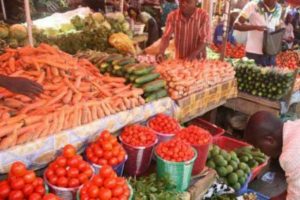An agriculture expert, Mr Ismail Olawale, has reiterated the need to equip local small-scale farmers on food preservation technology in order to prevent waste.
Olawale, a Development Communication expert at the National Agricultural Extension and Research Liaison Services (NAERLS), said this on Thursday in Lagos, noting that a major challenge in food preservation in the country is the inaccessibility and unavailability of food technology security for small-scale farmers.
“One of the challenges of food preservation in Nigeria is technology security. This has been an issue for a long time. Technology security in food preservation means having available technology that can help preserve perishable crops and foods of various varieties; ranging from grains to berries and to tubers. Technology security is also the ability to have this technology locally developed and made affordable to farmers with available renewable or improved spare parts”.
He said between 80 per cent and 85 per cent of Nigerian farmers are small-scale farmers and they do not cultivate beyond five hectares of land but they produce more than 70 per cent of the food stuffs consumed in the country.
“More than 500 million local farmers around the world provide the total foodstuffs consumed around the world, mechanised farming is still yet to beat small-scale farming in food production. Hence, we need to concentrate on developing food preservation technology that these small-scale farmers can afford at the right time and for the right purposes”.
Olawale called on the government to fund researches for the innovation in local food preservation technologies to aid small-scale farmers.
He also called for better transportation networks to reduce the rate of waste of perishable food items.
“Today, there are available technologies for the preservation of perishable food items; however, most of them are imported and are available to only a few wealthy large-scale farmers. There is the local knowledge of food/crop preservation techniques but the fact is that the agricultural sector around the world is changing and the consumption patterns of Nigerians are changing. The irony is that 80 per cent of the food items we consume is produced in the rural areas while between 70 per cent and 80 per cent of it is consumed in the urban areas and get perished before they arrive at their urban destinations. Another basic problem we have in food preservation is the poor transportation for the perishable items; transportation is a preservation technology in terms of responsiveness, adequacy and timeliness. If we have speed and the modern day train transportation for most of our perishable farm produce for example, tomatoes, we will have less perishable items”.
He said transporting food stuffs from either Kano or Katsina state to any part of the southwest or southeast with 911 trucks would take between 12 hours and 14 hours.
He identified long period of transportation by road as being one of the factors responsible for the occurrence of most perishable food items.
Olawale said that there was the need to develop the right technology in packaging tomatoes from one area to another in order to prevent the loss of the produce in transit.
“The government needs to commit a lot of funds into researches to develop local technology for preservation of our perishable food items”.
Expert Harps on Equipping Small-Scale Farmers on How to Preserve Perishable Food Items
- Advertisement -
- Advertisement -
- Advertisement -
- Advertisement -
- Advertisement -

